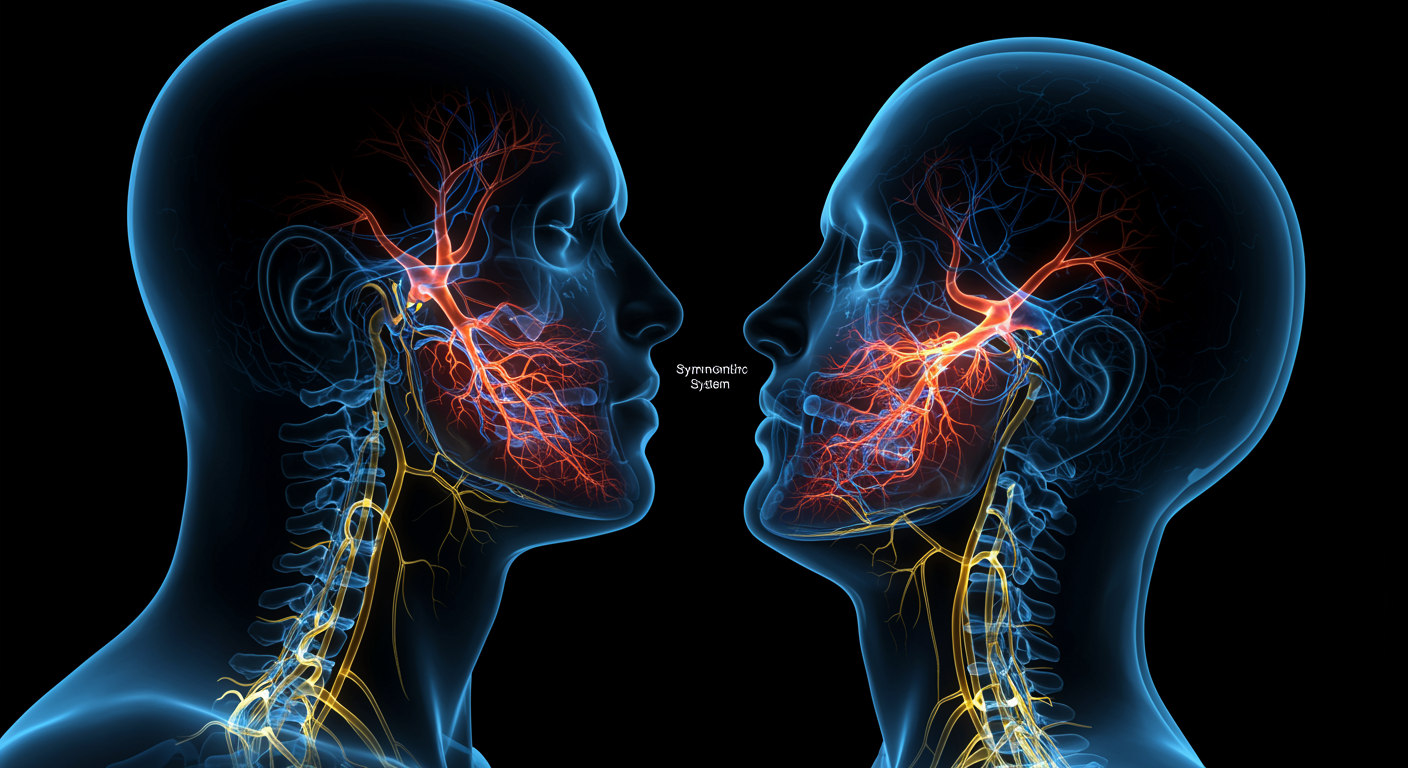Sympathetic Neural Mechanisms in Obstructive Sleep Apnea: Cardiovascular Impact
How Does Sleep Apnea Trigger Dangerous Cardiovascular Changes Through the Nervous System?
Obstructive sleep apnea triggers profound sympathetic nervous system overactivation that leads to hypertension, cardiac arrhythmias, and increased cardiovascular disease risk through complex neural mechanisms. This comprehensive review reveals that repeated episodes of airway obstruction and oxygen desaturation during sleep activate the sympathetic nervous system through multiple pathways, including chemoreceptor stimulation, arousal responses, and inflammatory cascades. The result is sustained elevation of sympathetic activity that persists even during wakefulness, creating a state of chronic cardiovascular stress. Studies show that OSA patients have 2-3 times higher sympathetic nerve activity compared to healthy individuals, directly contributing to the 2-4 fold increased risk of hypertension, heart failure, and sudden cardiac death observed in untreated sleep apnea.

